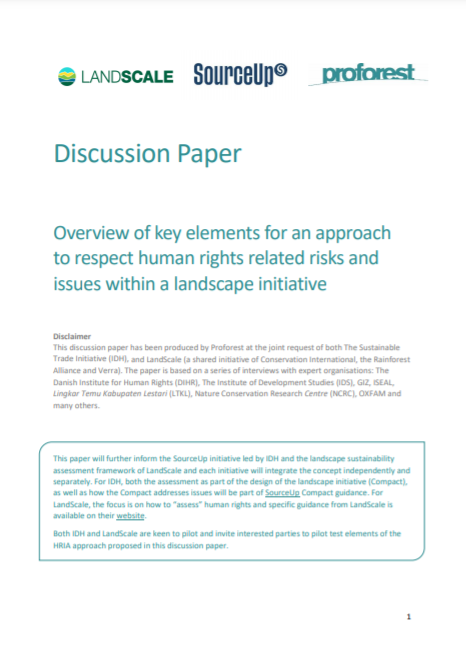Overview of Key Elements for an Approach to Respect Human Rights Related Risks and Issues Within a Landscape Initiative
SourceUp and the LandScale assessment framework are initiatives that focus on assessing and
addressing sustainability at the landscape level. Developing a sustainable landscape initiative entails building an alliance of local producers, governments, NGOs and other actors in a production area and agreeing on how to work together to achieve environmental and social sustainability goals for the landscape.
From the existing landscape projects, including pilots by IDH and LandScale, it has become clear that data related to social and human rights issues is less readily available and data collection is more resource intensive at the level of a landscape than for natural ecosystems or production. Data often typically exists at either country level or otherwise at the level of a community or one specific activity or project. Also, existing methodologies to assess human rights and social issues are mainly targeted at assessing impacts at project level or of specific activities (e.g. social impact assessments). For example, assessing the impacts of a new plantation or a new mining site on indigenous people, migrant workers or workers at a specific site. This lack of data and understanding of social related issues at a landscape level, provides challenges to ensuring that minimum safeguards are in place to protect, respect and remedy human rights.
Both IDH and LandScale have an interest in developing guidance for how stakeholders involved in a landscape initiative can ensure human rights safeguards are embedded within the design as well as implementation of their programme. Such guidance should cover how to identify and prioritise goals, outcomes and a set of indicators to monitor progress on human rights issues.
